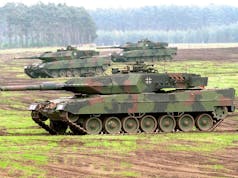
A £36M contract from the UK’s Ministry of Defence has been placed with European missile giant MBDA to develop a ground-based air defense missile system based on its Sea Ceptor system.
Three variants of the missile are to be developed for use across the Air, Land and Maritime environments. These are designated as CAMM(A), CAMM(L) and CAMM(M) respectively. The maritime variant is known as Sea Ceptor in the Royal Navy.
The contract is in support of the ministry’s Future Local Area Air Defense System (Land) program, with MBDA’s Common Anti-air Modular Missile, or CAMM at its heart. By using the system already contracted for installation on Type 23 frigates, known as Sea Ceptor, the development costs for a land system will be reduced.
The missile is expected to enter service in 2020 and will consist typically of four three-pack launchers fitted to a self-contained pallet that can be fitted to a range of vehicles. The launch vehicle will not have its own radar, instead taking targeting information over a secure datalink as part of an integrated air-defence network and using the active seeker head for terminal guidance.
The FLAADS(Land) system will provide the British Army with a modern and flexible system that will be one of the most advanced and capable in its class, providing operational, logistical and cost benefits over the current Rapier system.
Sea Ceptor has been chosen for New Zealands ANZAC frigate upgrade programme.
MBDA is delivering the FLAADS(Land) programme under a Portfolio Management Agreement (PMA). The PMA provides the UK Armed Forces with Freedom of Action and Operational Advantage. The PMA also ensures the skills and technologies critical for this are maintained in the UK.
Antoine Bouvier, Chief Executive Officer of MBDA, welcomed the news saying, “This new contract further demonstrates the value of the partnership strategy that MBDA is advancing with its domestic customers. By extending the FLAADS programme to land applications, the British MOD is showing that MBDA continues to be its Complex Weapons company of choice and recognises its ingenuity in maximizing cost benefits through modularity and the re-use of existing technologies. Made possible through the PMA framework established with the British MOD, CAMM-based missile systems offer advantages in terms of capability and through-life costs which I’m sure will interest many armies and navies around the world.”













[…] https://ukdefencejournal.org.uk/mbda-begin-work-british-ground-based-air-defence-system/ […]